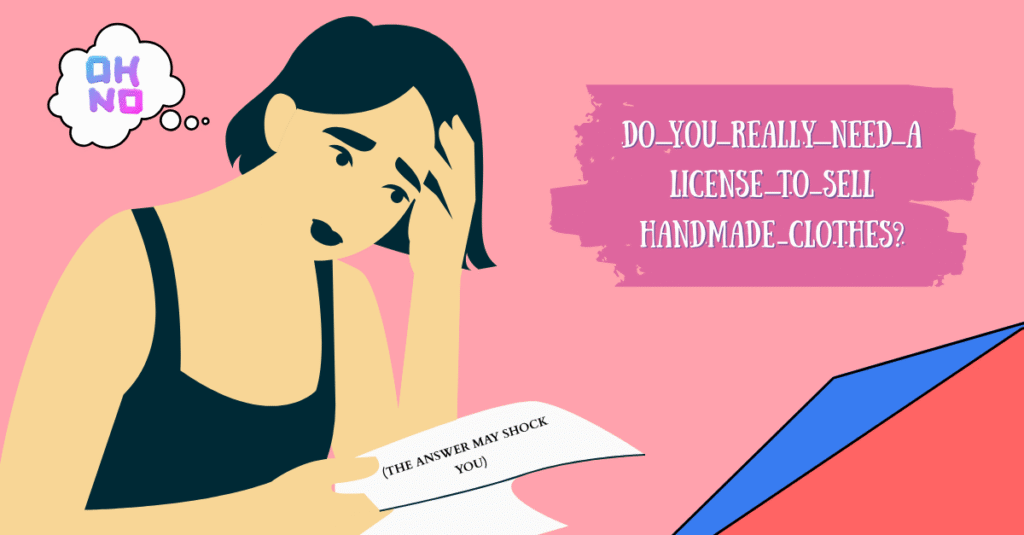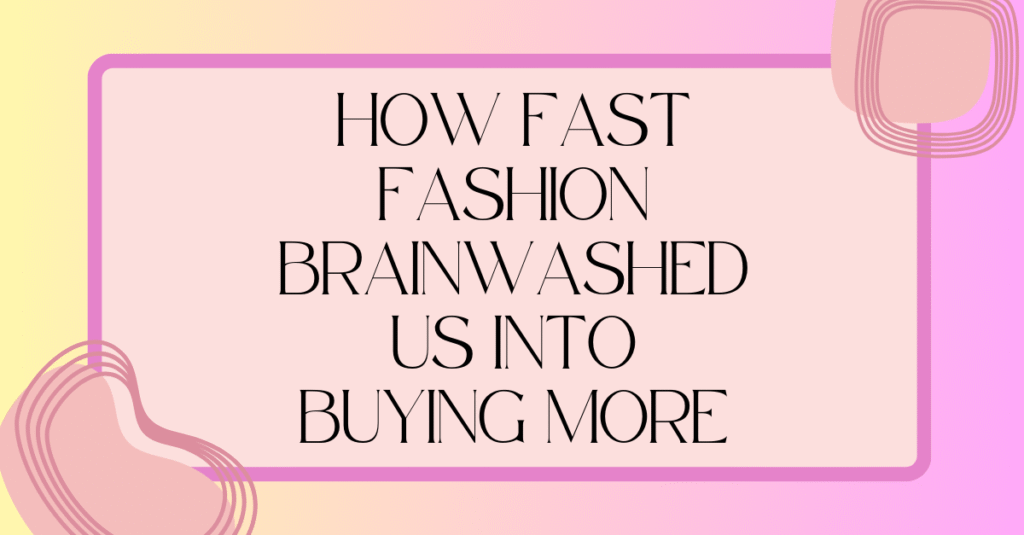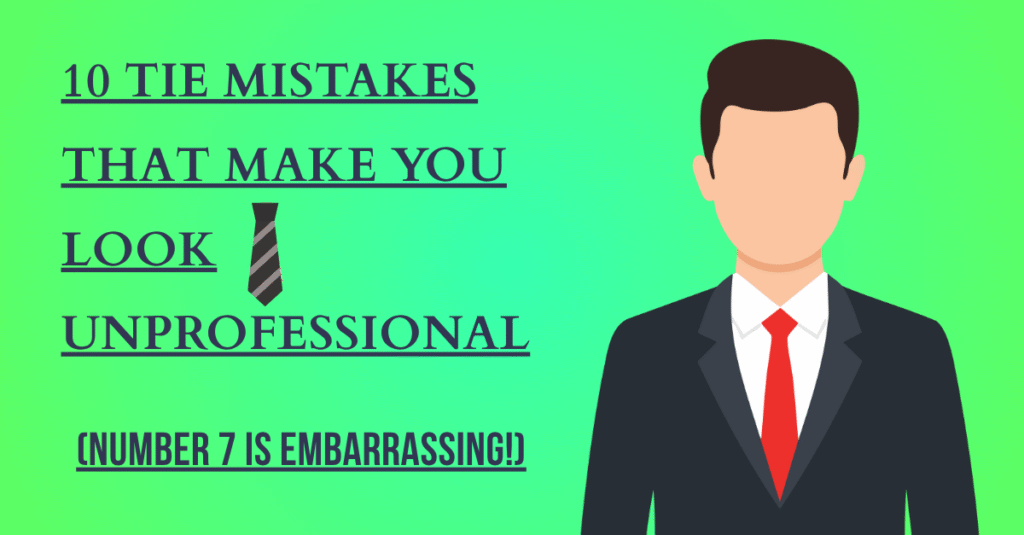Do You Really Need a License to Sell Handmade Clothes? (The Answer May Shock You)
Introduction:
You spent hours designing that perfect boho dress, carefully stitching each seam, and finally listed it on Etsy. Sales start rolling in—until one day, you get an email from your local government asking for your business license. Wait… what?
Here’s the uncomfortable truth: Selling handmade clothes without checking legal requirements can lead to fines, back taxes, or even a forced shutdown. And no, Etsy won’t protect you from local laws.
You might think, “I’m just a small seller—do I really need a license?” The answer isn’t black and white. It depends on where you live, how you sell, and how much you earn.
In this guide, we’ll cut through the legal jargon and give you a clear, step-by-step breakdown of when you need a license, how to get one, and sneaky loopholes you might not know about. By the end, you’ll know exactly how to keep your handmade business safe, legal, and thriving.
Let’s dive into: “Do You Really Need a License to Sell Handmade Clothes? (The Answer May Surprise You)” — stick around till the end!
1. The Big Question: Do You Actually Need a Business License?

The short answer? Probably.
But let’s break it down. A business license is basically your government’s way of saying, “Hey, we see you’re making money—let’s keep it official.” The rules vary wildly depending on:
-
Your location (City, county, and state laws all play a role)
-
Where you sell (Online? Craft fairs? Social media?)
-
Your business structure (Sole proprietor, LLC, etc.)
-
How much you earn (Hobby vs. full-time income)
When You Definitely Need One:
-
You sell regularly (even just a few items per month).
-
You operate under a business name (not just your personal one).
-
You sell in-person at markets, pop-ups, or consignment shops.
-
Your state requires a sales tax permit (most do).
When You Might Skip It (For Now):
-
You’re just testing the waters (selling a few items to friends/family).
-
You earn under your state’s “hobby income” threshold (often $400/year).
-
You only sell on platforms like Etsy that collect sales tax for you (but check local laws!).
Still unsure? Let’s dig deeper.
2. The Different Types of Licenses & Permits (And Which Ones Apply to You)
Not all licenses are created equal. Here’s what you might need:
A. General Business License (City/County)
This is the most basic requirement. Your city or county wants to track local businesses for tax purposes. Costs range from $25 to $100, and you’ll usually renew it annually.
Example: In Los Angeles, even home-based crafters need a “Home Occupation Permit.”
B. Sales Tax Permit (State)
If you sell physical goods (like clothing), most states require you to collect sales tax. You’ll need a permit to do this legally.
-
Online sellers: Some states demand tax collection even if you’re based elsewhere.
-
Market sellers: Craft fairs often require proof of a sales tax ID.
Pro Tip: If you sell on Etsy, they handle sales tax in some states—but not all. Always double-check!
C. DBA (“Doing Business As”)
If you sell under a cute brand name (like “Stitch & Willow”), you’ll likely need a DBA registration ($10-$50). This makes your business name official.
D. Federal EIN (For LLCs or Hiring Help)
An Employer Identification Number (EIN) is free from the IRS. You’ll need one if you:
-
Form an LLC (for liability protection).
-
Hire employees (even just a part-time assistant).
3. The Sneaky Loopholes (When You Can Sell Without a License)
Yes, there are ways to legally avoid some licenses—if you’re smart about it.
A. The “Hobby Seller” Exception
If you’re just selling occasionally (think: a few scarves at Christmas), some states don’t require a license. The IRS typically defines “hobby income” as under $400/year, but local laws vary.
Warning: If you deduct business expenses on taxes, the IRS may argue you’re running a real business—not a hobby.
B. Selling Only on Tax-Collecting Platforms
Etsy, Shopify, and Amazon Handmade collect sales tax in many states. But here’s the catch: They don’t cover local business licenses. So while you might skip a sales permit, your city could still come knocking.
C. “Friends & Family” Sales
Selling to people you know? Cash transactions or Venmo payments often fly under the radar. But the second you sell at a market or online, the rules tighten.
4. How to Get Licensed (Step-by-Step Without the Headache)
Ready to go legit? Here’s how:
-
Check Your City’s Website
Search “[Your City] business license”—most have online applications. -
Apply for a Sales Tax Permit
Visit your state’s Department of Revenue site (it’s usually free). -
Register a DBA (If Needed)
File with your county clerk (costs $10-$50). -
Consider an LLC
If you’re serious, an LLC protects your personal assets. Use LegalZoom or file directly with your state ($50-$500). -
Display Your License (If Required)
Some cities ask for a visible permit at markets or home studios.
5. The Cost of Skipping Licenses (Real-Life Horror Stories)
Think you can wing it? Think again.
-
Case Study 1: A Texas Etsy seller was hit with $2,000 in back taxes after 3 years of unlicensed sales.
-
Case Study 2: A home-based seamstress in Florida was fined $500 for missing a Home Occupation Permit.
The risks? Fines, tax audits, and even forced business closure.
6. FAQ: Quick Answers to Burning Questions
Q: “Do I need a license to sell on Etsy?”
A: Etsy doesn’t require one, but your local government might.
Q: “What if I only sell at craft fairs?”
A: Most fairs require a sales tax ID. Some cities also demand a temporary vendor permit.
Q: “Can I sell without an LLC?”
A: Yes, but an LLC protects your personal savings if sued.
Conclusion: Better Safe Than Sorry
Selling handmade clothes is a dream—until a legal surprise turns it into a nightmare. The good news? Getting licensed is cheaper and easier than dealing with fines later.
Your Next Steps:
✅ Google “[Your City] business license” today.
✅ Apply for a sales tax permit (takes 10 minutes).
✅ Sleep soundly knowing your biz is legit.
Now go forth and sell—the right way.
Hope you enjoyed the article “Do You Really Need a License to Sell Handmade Clothes?” If you have any questions about selling handmade clothes legally, feel free to message me directly! I’m happy to help you navigate the licensing process with confidence.
Read More: The Fastest Way to Start Selling Your Fashion Designs Online

My name is Rohit Vagh and I’m a content writer specializing in fashion and lifestyle. I have three years of experience in this field and have written various articles. My writing style is creative and engaging, and I strive to create content that resonates with my readers. I have a deep passion for fashion and am constantly researching the latest trends and styles to make sure my readers are up to date. I’m excited to continue my career in blogging, and I’m always looking for new opportunities in the fashion and lifestyle space.





